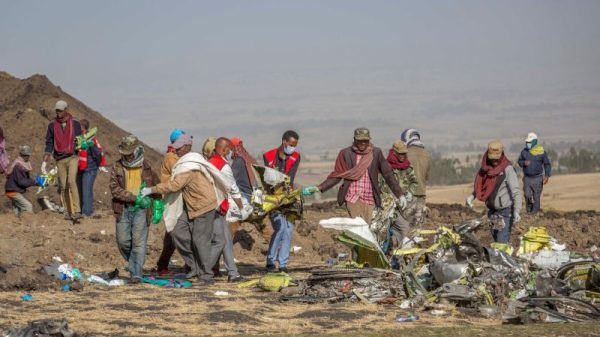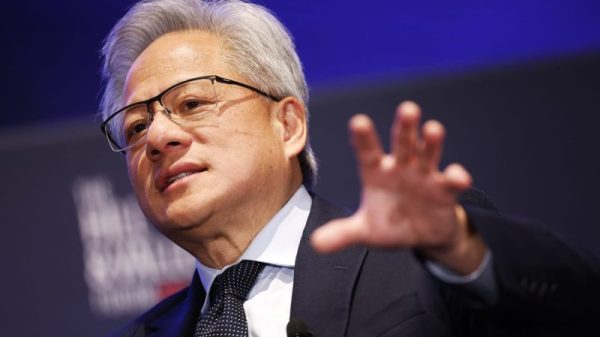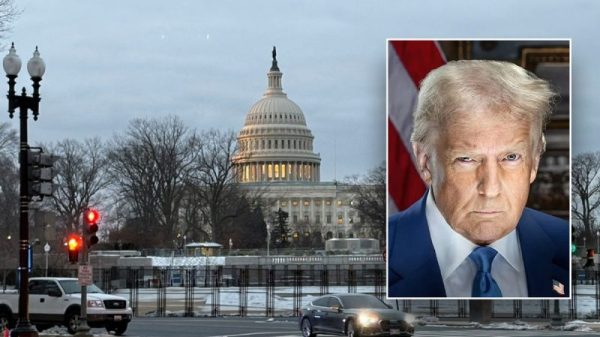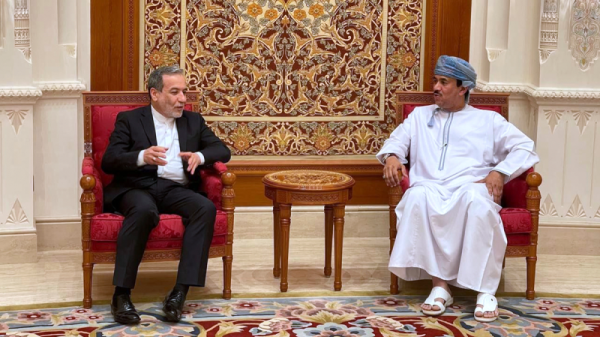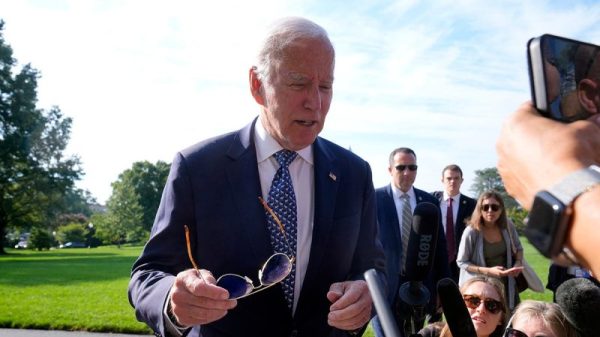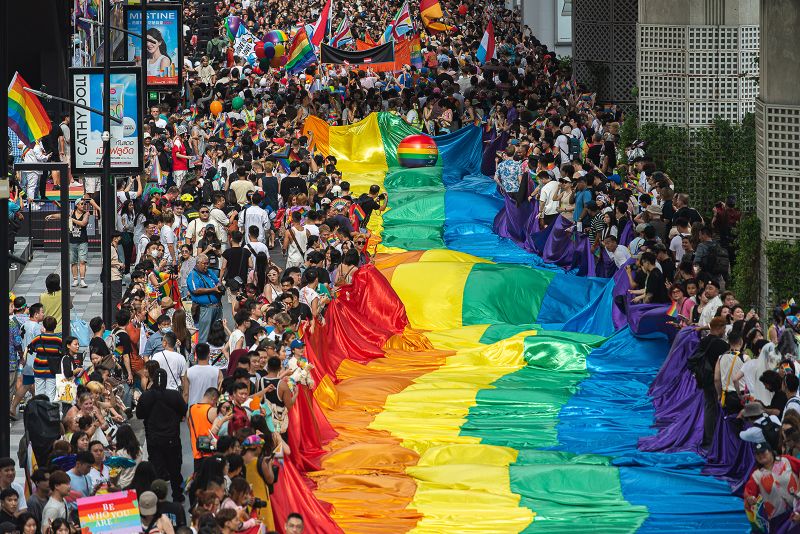Rainbow flags rippled in the wind as gay and lesbian couples walked hand in hand down a makeshift aisle in Bangkok’s busy Siam shopping district.
Thailand’s Senate had just passed a marriage equality bill, and the local LGBTQ+ community was in the mood to celebrate.
While the ceremonies were symbolic enactments of same-sex weddings, the real thing could be just around the corner.
“Now I can freely say that I am gay,” said Pokpong, who can’t wait to marry his partner Watit Benjamonkolchai.
The law, passed in June, still requires the thumbs-up from the king, but that is expected soon, clearing the way for Thailand to become the first jurisdiction in Southeast Asia to legalize same-sex marriage, and Asia’s third after Taiwan in 2019 and Nepal last year.
But the recent flurry of progress for marriage equality in Asia could stop there, with no other government in the region looking likely to follow suit anytime soon.
The winning formula
More than 30 jurisdictions worldwide now recognize same-sex marriage, according to the Pew Research Center. Since the first same-sex marriage law was passed in the Netherlands in 2001, progress has been made mostly in Europe, the Americas and Australasia.
Just across Thailand’s borders, homosexuality is illegal in Myanmar and Malaysia. Bans also exist in Sri Lanka, Brunei, Bangladesh and Indonesia’s ultraconservative province of Aceh. Maximum penalties range from lengthy jail terms to caning, according to the Human Dignity Trust, a United Kingdom-based body that supports strategic litigation worldwide against laws prejudicing the LGBTQ+ community.
“Despite some historic wins in the region… the human rights of LGBTI people across Asia continue to be denied,” said Nadia Rahman, policy advisor at Amnesty International’s Global Gender, Racial Justice, Refugees and Migrants Rights Programme. She added that people from these communities face “criminalization, threats of arrest, discrimination, digital surveillance, harassment, online abuse, stigma and violence.”
While liberalization in Thailand, Nepal and Taiwan was propelled by those places’ unique cultures and socio-political circumstances, scholars and activists said, most other Asian governments are held back by conservative social attitudes, influential religious groups and the lack of robust democratic systems.
Campaigners and academics in Asia say Nepal has long had a liberal judiciary willing to side with the LGBTQ+ community, while its deeply embedded culture of third-gender “hijras” laid the groundwork for liberal changes. In Thailand and Taiwan, many attribute progress to a combination of democratic development and a robust civil society.
Assistant professor Kangwan Fongkaew, who researches LGBTQ+ issues at Burapha University, said despite political instability in recent decades, Thailand’s political system was functional enough to channel popular demands into legislation.
“The majority of people in Thailand want marriage equality,” Kangwan said. “And now it’s time for Thailand to have that,” he added, calling it “the victory of the people.”
Unlike in mainland China – where LGBTQ+ activism is taboo and can draw backlash from authorities – the movement has thrived in Taiwan. Campaigner Jennifer Lu, director of gay rights advocacy Outright International in Taiwan, noted the importance of the island’s functional democratic system in the process of liberalization.
“This kind of democratic practice really creates the foundation of this progressive vibe,” Lu said.
Acceptance of non-traditional gender identities has grown stronger since. In May, Taiwan’s then President Tsai Ing-wen invited homegrown drag queen Nymphia Wind to perform at the Presidential Office to celebrate her win on hit TV talent show “RuPaul’s Drag Race.”
Asia’s next best bets
While other Asian jurisdictions have the potential to be the fourth to allow LGBTQ+ couples to marry, according to experts, they are not convinced changes will come anytime soon.
India is also a democracy, and – like neighboring Nepal – has laws protecting transgender people, so is a legitimate contender. But campaigners there say authorities are lukewarm on the need for change.
Activist Anish Gawande, who co-founded Pink List India, a group tracking politicians’ stance on LGBTQ+ issues, said understanding for sexual minorities is growing in the world’s most populous nation. He has recently been appointed the first openly gay national spokesman of a political party. But he said the government refuses to do more than it needs to please the international community.
LGBTQ+ activists petitioned India’s highest court for the right to marry, only to be told it should be decided by the government.
The government, run by India’s third term Prime Minister Narendra Modi, has set up a committee to look into the issue, but without any notable outcome, Gawande said, adding that with neither New Delhi nor the courts taking the lead on the issue there was “a stalemate for LGBTQ+ rights in the country.”
Japan – the only G7 country that does not recognize same-sex relationships – has seen piecemeal victories for LGBTQ+ rights through multiple court cases and at the prefecture level.
In early July, Hiroshima’s high court approved a trans woman’s request to alter her birth gender status without undergoing gender-affirming surgery. And some local governments, including Tokyo, have issued certificates to honor de facto same-sex relationships for administrative purposes, such as housing subsidies.
But on the national level, Japan does not recognize same-sex marriage and local courts have returned conflicting verdicts on the issue.
Polls suggest popular backing. Up to 68% of Japan’s adults support same-sex marriage, the highest share in Asia, according to the Pew Research Center. But in a country where the government takes pride in traditional values, change can be slow.
And in neighboring South Korea, traditionally conservative views on sexuality persist.
Scuffles broke out last year in the city of Daegu as local officials led by the mayor clashed with police during a protest against an LGBTQ festival. Organizers of the flagship Seoul Queer Culture Festival also lost their venue last year to a Christian youth concert.
There have been some progressive successes, however. The country’s Supreme Court ruled last month that same-sex partners should be entitled to spousal benefits from national health insurance.
Professor Andrew Kim, from Korea University’s College of International Studies, said religious groups are influential in the country. “The missionaries who came to Korea from the US … they are largely conservative protestant missionaries,” he said.
Uncertainties in the region
One argument for legalizing same-sex marriage is the economic advantages of doing so, especially if neighboring economies aren’t.
Multinational companies need to move their staff around – including those who aren’t heterosexual – and have been lobbying for changes in financial hubs such as Singapore and Hong Kong, which would both like to attract and retain major company HQs.
“If you’re a country that welcomes these high-tech companies with very liberal policies, yet the rest of the society is repressive, like Singapore for example, where same-sex partners cannot get visas, the governments will have to think about how it manages these things,” said Shawna Tang, senior gender studies lecturer at the University of Sydney.
But even in the face of such pressure, neither Hong Kong’s nor Singapore’s government seems particularly keen to liberalize.
Singapore’s parliament decriminalized sex between men in 2022, but amended the constitution to effectively block court challenges that could lead to same-sex marriage.
In Hong Kong, the Court of Final Appeal ordered the city’s government last September to create a legal framework to recognize the rights of same-sex couples. But months have lapsed, and the government has not yet responded.
The court also stopped short of granting same-sex marriage, meaning this could be as far as the efforts get. And with Beijing tightening its grip on the city in recent years, activists said, the political space needed to facilitate change is shrinking.
Professor Peter Newman, from the University of Toronto’s Factor-Inwentash Faculty of Social Work, said while things are improving in Asia, progress has been “extremely uneven.”
“In at least six Asian countries, same-sex intimacy and relationships remain criminalized, as well as the gender expression of transgender people, with punishments on the books from eight years and ’100 lashes’ in Indonesia and Malaysia, to life imprisonment in Bangladesh,” he said.
Even in places where same-sex marriage has been legalized, widespread challenges persist from school to workplace bullying to stigma in health care services, he said.
But Suen, from the Chinese University of Hong Kong, said across Asia, public discussions have bloomed, and that Thailand’s move to legalize same-sex marriage was an encouraging sign.
“The outlook is positive, but it’s going to take a while,” Suen said.





